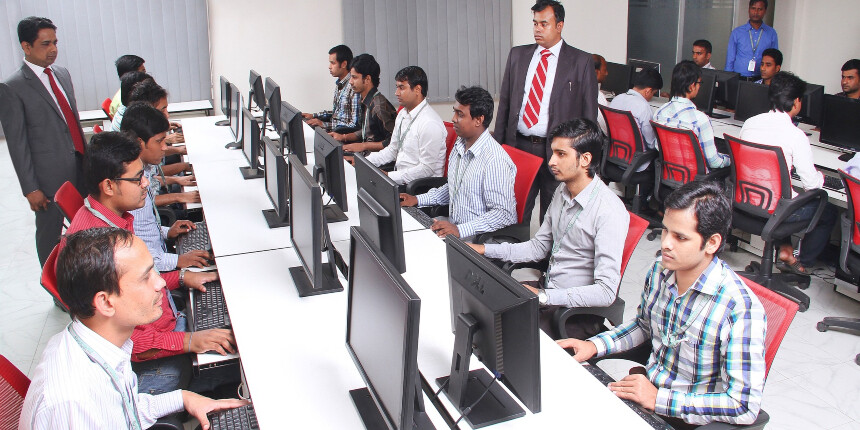Top 500 Indian firms will need around 30,000 AI ML experts by 2028: IIM Ahmedabad study
R. Radhika | July 13, 2023 | 11:31 AM IST | 2 mins read
Artificial Intelligence: Top firms will also need 1 mn hours to train employees in AI ML, says the IIMA study. BFSI alone has high AI maturity now.

NEW DELHI: In the next three to five years, the top 500 corporations will need at least 25,000 to 30,000 advanced practitioners of artificial intelligence and machine learning (AIML), a study conducted by Indian Institute of Management (IIM) Ahmedabad estimates.
Currently, India has only 4.5 percent of the world’s AI professionals and the talent crunch, the report observes, is likely to get more acute. . The study–‘AI in India — A Strategic Necessity’ – estimates that core AI talent, especially data scientists, data engineers, enterprise architects would account for 15 to 20 percent of this demand. The report has been jointly released by the Brij Disa Centre for Data Science and Artificial Intelligence (CDSA) at the IIMA and Boston Consulting Group.
The study further observes that “to handle AI driven transformations, the existing senior and middle management of these 500 companies would require a minimum of a million hours of training”. A NASSCOM report also projects that the demand-supply gap for digital technology talent will more than treble by 2026 to 1.4-1.8 million.
The talent gap is despite the fact that India ranks in the global top 10 for AI research and patents but is behind in advanced research. “Research in the latest technologies is often limited to incrementalism in most firms. Additionally, a fledgling collaboration between industry-academia limits monetisable research and IP creation. This scenario further discourages advanced talent development,” the report states.
Currently, less than 3% of graduates in India pursue a PhD in the field, the report said.
Also Read| ‘Campus placements may reduce but internship stipends, salaries will rise’: TeamLease VP
New Jobs, AI maturity
With exponential use of AI in businesses, automation of repetitive tasks has led to the disappearance of middle-skilled jobs and increased wage inequality. However, the report suggests that the implementation of AI has also led to new job creations that will combine AI skills with socio-behavioral skills.
“Experts suggest that emerging technologies may increase the productivity of existing jobs as well as create new roles which are difficult to envisage today. These new roles may require a combination of skills such as higher technological acumen, better empathy, people connect and critical thinking.” the report states.
Also Read| No ‘beginner-level stuff’: BTech interns drive AICTE’s translation AI-ML tool development
Keeping up with the technological developments, companies will need to prioritise AI or perish, the report further observed. In India alone, successful adoption of AI could add up to 1.4 percentage points annually to real GDP growth, the report states.
Based on the responses of 130 companies from the banking, financial services and insurance (BFSI), consumer goods (CG) and industrial goods (IG) sectors, along with interviews and surveys conducted on chief experience officers (CXO’s) of large-sized, medium and small organisations, the study found that select Indian BFSI companies (particularly banks and new-age NBFCs) have very high AI Maturity, on par with global frontrunners. Whereas, in the consumer goods and industrial goods sectors, three out of four companies are falling behind in AI maturity.
Follow us for the latest education news on colleges and universities, admission, courses, exams, research, education policies, study abroad and more..
To get in touch, write to us at news@careers360.com.